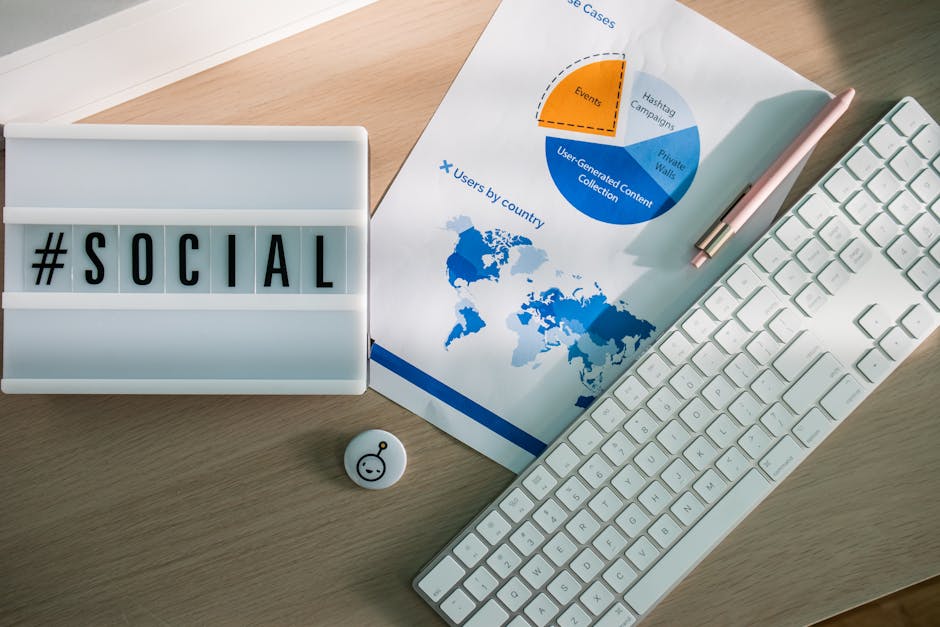The Role of Social Media in Modern SEO
Social media and SEO (Search Engine Optimization) are two powerful tools in digital marketing, each with a unique role in driving traffic and engagement. Over the past decade, the intersection of social media and SEO has become increasingly important for businesses looking to enhance their online presence. Understanding how these two elements complement each other is essential for any modern digital marketing strategy.

Impact of Social Media on SEO Rankings
Social media platforms like Facebook, Twitter, Instagram, and LinkedIn significantly impact SEO rankings. Although social signals are not direct ranking factors, they influence the visibility and credibility of content. When users share, like, or comment on a post, it increases the content's reach, potentially leading to more backlinks and higher traffic.
Google's algorithms consider user engagement metrics as indicators of content quality. High engagement rates on social media can lead to increased brand awareness and more organic searches for a company's website. This process indirectly boosts SEO performance.
A study by Search Engine Journal reveals that content with high social engagement tends to rank better in search results. The more a piece of content is shared across social platforms, the higher the likelihood of attracting backlinks from authoritative websites (searchenginejournal.com).
Content Distribution and Visibility
Social media provides an excellent platform for distributing content and increasing its visibility. Businesses can reach a broader audience by sharing blog posts, articles, videos, and infographics on social channels.
An effective content distribution strategy involves tailoring the content for each platform. For instance:
- Facebook: Ideal for long-form content, infographics, and community engagement.
- Twitter: Best for short updates, links to articles, and real-time interactions.
- Instagram: Perfect for visually appealing content such as images and short videos.
- LinkedIn: Suitable for professional articles, industry news, and networking.
This targeted approach ensures that the right content reaches the right audience, enhancing engagement and driving traffic back to the website.
User-Generated Content (UGC)
User-generated content (UGC) is another way social media influences SEO. Reviews, testimonials, and user-submitted posts provide authentic content that search engines favor. UGC not only boosts engagement but also adds fresh and relevant content to a website.
Encouraging customers to share their experiences on social media can lead to increased mentions and backlinks. Platforms like Instagram often see users sharing photos of products with branded hashtags. This practice generates organic visibility and builds trust among potential customers.
A report from Nielsen shows that 92% of consumers trust recommendations from friends and family over traditional advertising (nielsen.com). Leveraging UGC can thus significantly enhance both social media presence and SEO performance.
Local SEO Benefits
Social media also plays a crucial role in local SEO strategies. Local businesses can leverage platforms like Facebook and Google My Business to improve their local search rankings. Consistent NAP (Name, Address, Phone number) information across social profiles ensures that search engines recognize the business's location accurately.
Engaging with local communities on social media helps build a loyal customer base. Sharing local events, promotions, and collaborations with nearby businesses can increase local brand awareness and drive foot traffic to physical stores.
A survey by BrightLocal indicates that 78% of consumers use the internet to find information about local businesses more than once a week (brightlocal.com). Maintaining an active presence on social media platforms is vital for capturing this audience.
Measuring Success: Analytics Tools
To gauge the effectiveness of social media efforts on SEO, utilizing analytics tools is essential. Google Analytics offers insights into how social traffic impacts website performance. Metrics such as bounce rate, session duration, and conversion rates provide valuable data on user behavior.
| Metric | Description |
|---|---|
| Bounce Rate | The percentage of visitors who leave after viewing only one page. |
| Session Duration | The average time visitors spend on the website. |
| Conversion Rate | The percentage of visitors who complete a desired action (e.g., filling out a form). |
Social media platforms also offer native analytics tools that provide insights into post performance, audience demographics, and engagement rates. Regularly reviewing these metrics helps refine social media strategies to better support SEO goals.
The Future of Social Media in SEO
The relationship between social media and SEO will likely continue evolving as search engines become more sophisticated in understanding social signals. Innovations like voice search and AI-driven algorithms will further integrate social media metrics into SEO strategies.
Businesses must stay updated with trends and continuously adapt their tactics to maximize the synergy between social media and SEO. By leveraging these two powerful tools effectively, companies can achieve greater visibility, higher engagement rates, and improved search rankings.
The interplay between social media and modern SEO is undeniable. From enhancing visibility to driving user engagement, leveraging these platforms effectively can lead to significant improvements in search engine rankings. By understanding how they complement each other, businesses can create comprehensive digital marketing strategies that harness the full potential of both tools.